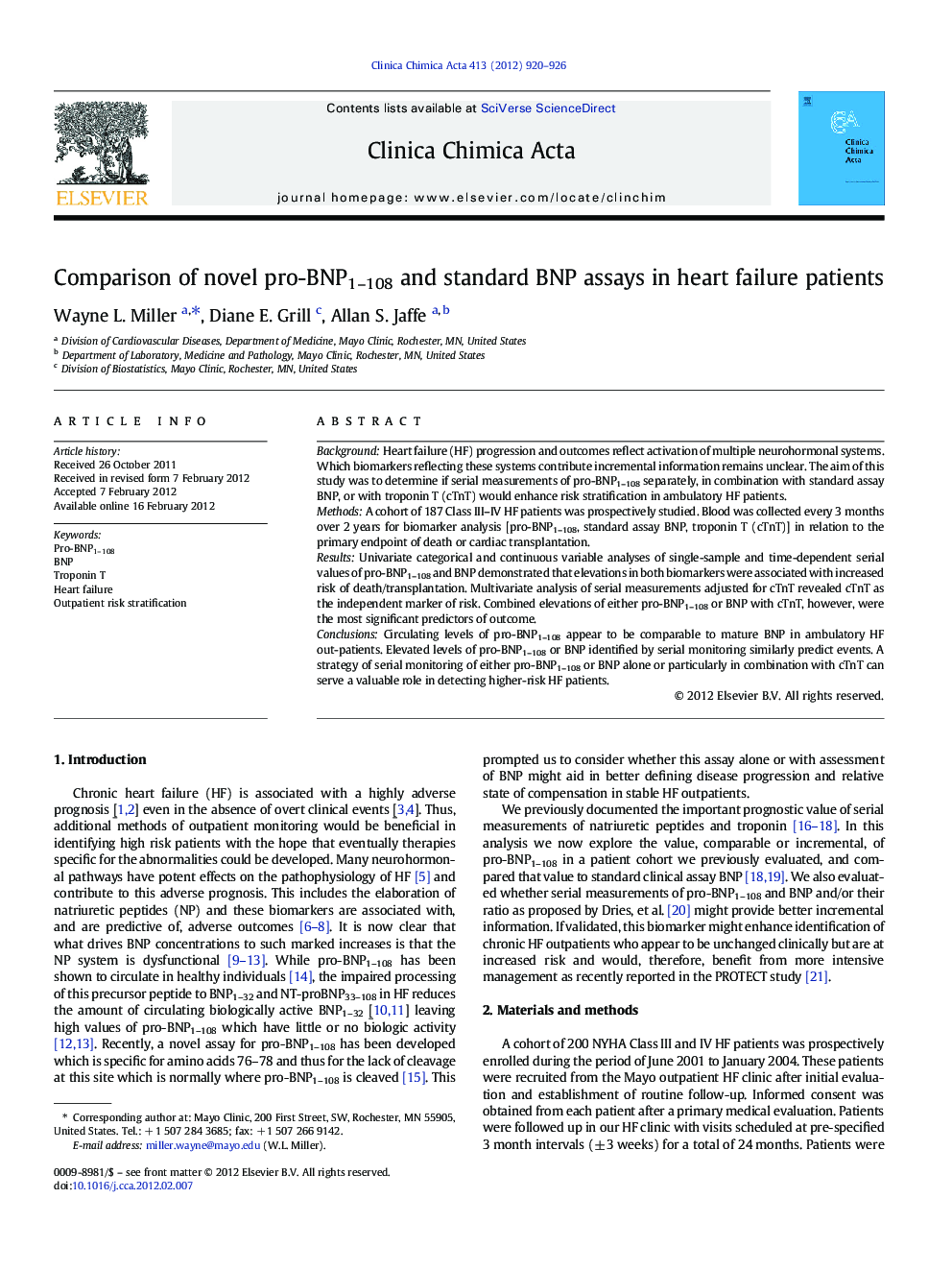| Article ID | Journal | Published Year | Pages | File Type |
|---|---|---|---|---|
| 1965886 | Clinica Chimica Acta | 2012 | 7 Pages |
BackgroundHeart failure (HF) progression and outcomes reflect activation of multiple neurohormonal systems. Which biomarkers reflecting these systems contribute incremental information remains unclear. The aim of this study was to determine if serial measurements of pro-BNP1–108 separately, in combination with standard assay BNP, or with troponin T (cTnT) would enhance risk stratification in ambulatory HF patients.MethodsA cohort of 187 Class III–IV HF patients was prospectively studied. Blood was collected every 3 months over 2 years for biomarker analysis [pro-BNP1–108, standard assay BNP, troponin T (cTnT)] in relation to the primary endpoint of death or cardiac transplantation.ResultsUnivariate categorical and continuous variable analyses of single-sample and time-dependent serial values of pro-BNP1–108 and BNP demonstrated that elevations in both biomarkers were associated with increased risk of death/transplantation. Multivariate analysis of serial measurements adjusted for cTnT revealed cTnT as the independent marker of risk. Combined elevations of either pro-BNP1–108 or BNP with cTnT, however, were the most significant predictors of outcome.ConclusionsCirculating levels of pro-BNP1–108 appear to be comparable to mature BNP in ambulatory HF out-patients. Elevated levels of pro-BNP1–108 or BNP identified by serial monitoring similarly predict events. A strategy of serial monitoring of either pro-BNP1–108 or BNP alone or particularly in combination with cTnT can serve a valuable role in detecting higher-risk HF patients.
► Heart failure (HF) is a progressive disease. ► Natriuretic peptides such as unprocessed pro-BNP1–108 may inform risk stratification. ► We studied 187 Class III–IV patients by serial blood sampling every 3 months for 2 years. ► Circulating levels of pro-BNP1–108 are comparable to mature BNP in ambulatory HF patients. ► A strategy of serial monitoring of pro-BNP1–108 or BNP may detect higher-risk HF patients.
